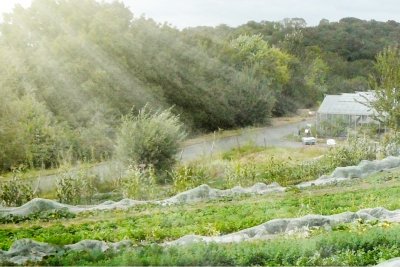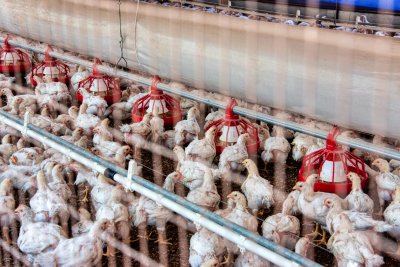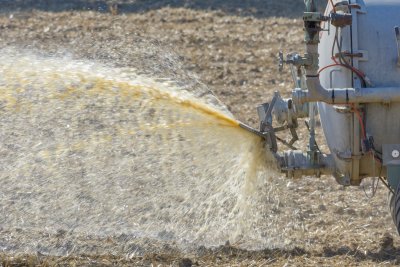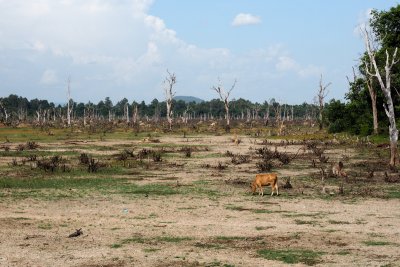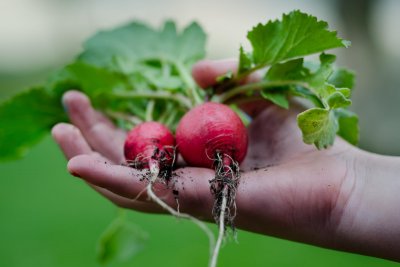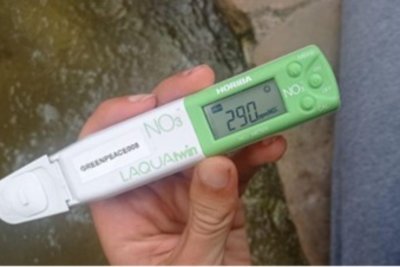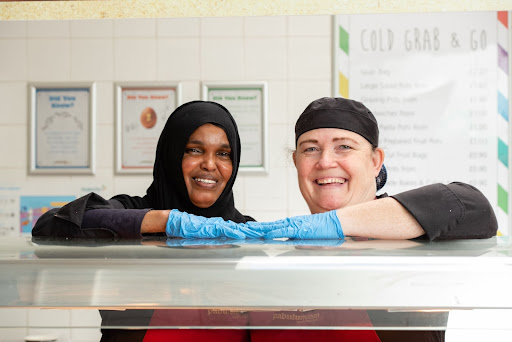 Credit: School Food Matters
Credit: School Food Matters
With a focus on the role of meat and dairy, the ‘Serving Better’ guide inspires and encourages local authorities to commit to deliver:
- 25% reduction in the volume of meat and dairy served in council-controlled settings by 2025
- 25% of meat and dairy served meets ‘better’ animal welfare and environmental standards by 2025
Reducing meat and dairy consumption will help reduce the greenhouse gas emissions’ footprint of our diet. Healthier diets with less meat and dairy and more vegetables have lower environmental impacts: if everyone in the UK adopted a diet in line with the Eatwell Guide, it’s estimated dietary emissions would fall by 45%, water use by 4% and land use by 49%
Watch the 'Serving Better' film
The guide and film emphasise that switching to better meat and dairy doesn’t mean menus should cost more - balancing the menu with more vegetables and plant proteins can reduce costs, as plant-based meals tend to be cheaper than meat-based dishes. In addition, sourcing seasonal produce from smaller local growers and higher welfare producers supports local economies.
Kerry McCarthy MP, vice-chair of APPG (all-party parliamentary group) on the National Food Strategy said:
“There’s a lot of talk about supporting sustainable farming systems and better land use, but on the other hand we are absolutely complicit in deforestation in our supply chains. There’s this race to the bottom in terms of ever cheaper food. When we’re importing cheap food from abroad it’s at the cost of environmental and animal welfare standards, as well. We need to grow more locally and have those local supply chains and what’s been happening lately in terms of the crisis in our food supply chains demonstrates that, even more than in the past.
Kath Dalmeny, chief executive of the Sustain alliance, said:
"Councils hold four big keys to reducing the huge impact of our food system on our climate, wildlife and people’s health. These are the food that councils buy, the land they manage, how they deal with food waste and how they support local food businesses. This is a fantastic how-to guide and we're looking forward to it becoming a core part of our work with local food partnerships across the UK through the new Food for the Planet campaign."
Governments have a duty to support local areas in delivering healthy, sustainable diets. The Glasgow Declaration recognises that “the majority of sustainable food system innovation and change are occurring at the local and regional levels." But they can’t do it on their own, which is why government must act. As a first step, in England, this means implementing the National Food Strategy recommendations.
Eating Better is an alliance of over 60 civil society organisations, and Sustain is a founder member. The alliance is accelerating action for less and better meat and dairy for health, environment, animal welfare and social justice https://www.eating-better.org
Climate Change and Nature: Sustain has taken a keen interest in the rapidly accumulating evidence about the effect of food and farming on climate change and nature, as scientific evidence emerges that our food system is a very significant contributor to greenhouse gas emissions and biodiversity loss.
Sustain
The Green House
244-254 Cambridge Heath Road
London E2 9DA
020 3559 6777
sustain@sustainweb.org
Sustain advocates food and agriculture policies and practices that enhance the health and welfare of people and animals, improve the working and living environment, promote equity and enrich society and culture.
© Sustain 2024
Registered charity (no. 1018643)
Data privacy & cookies
Icons by Icons8
